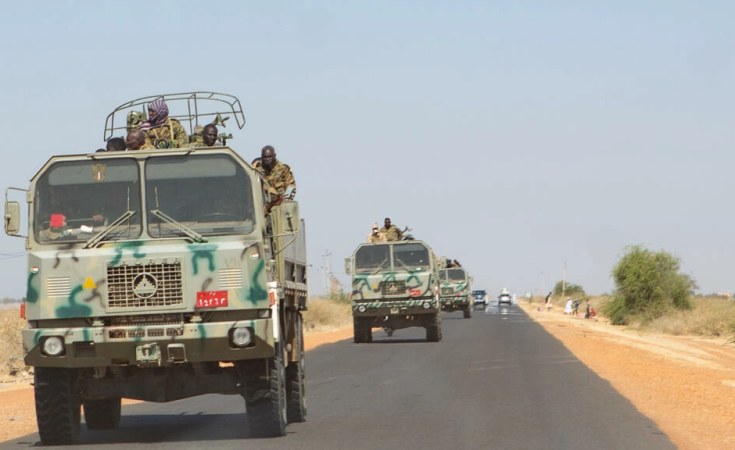The agreement was delayed after parties failed to iron out details on the military restructure. Plans for returning to civilian rule were reached late last year, after persistent protests since an October 2021 coup.
Sudanese authorities postponed once again inking an agreement to name a civilian government, as negotiating parties failed to conclude discussions on restructuring the military.
The agreement to launch a new transition toward elections that would bring the country back on a civilian track after the October 2021 coup was initially reached late last year.
It followed persistent protests since the coup. The country's economy is ailing after decades of sanctions and was further crunched under the coup, the pandemic and the wider aftershock of the war in Ukraine.
The agreement was supposed to be signed on April 1. That date was later postponed to Thursday, only for Sudanese authorities to postpone it once again, this time without setting a new date.
Instead, the Forces of Freedom and Change coalition, a powerful civilian group, called for protests on Thursday. April 6 marks two uprisings in 1985 and 2019 which led to the ouster of two leaders, Jaafar Nimeiry and Omar al-Bashir, respectively.
Why was the agreement postponed?
The Forces of Freedom and Change coalition said progress was made on military restructuring. However, there were disagreements this week over the timeline for integrating the paramilitary Rapid Support Forces (RSF) into the military.
The disagreement is reportedly between RSF leader Mohamed Hamdan Daglo and military ruler General Abdel Fattah al-Burhan, who led the 2021 coup.
The RSF emerged from the Janjaweed militia which Bashir leaned on in his crackdown on the western Darfur region in the early 21 century. The militia is accused of committing war crimes against Darfur's non-Arab rebels.
However, Bashir's 2019 ouster did not eliminate the RSF. Its leader Daglo was among the most powerful figures in post-Bashir Sudan.
(AFP, Reuters)


